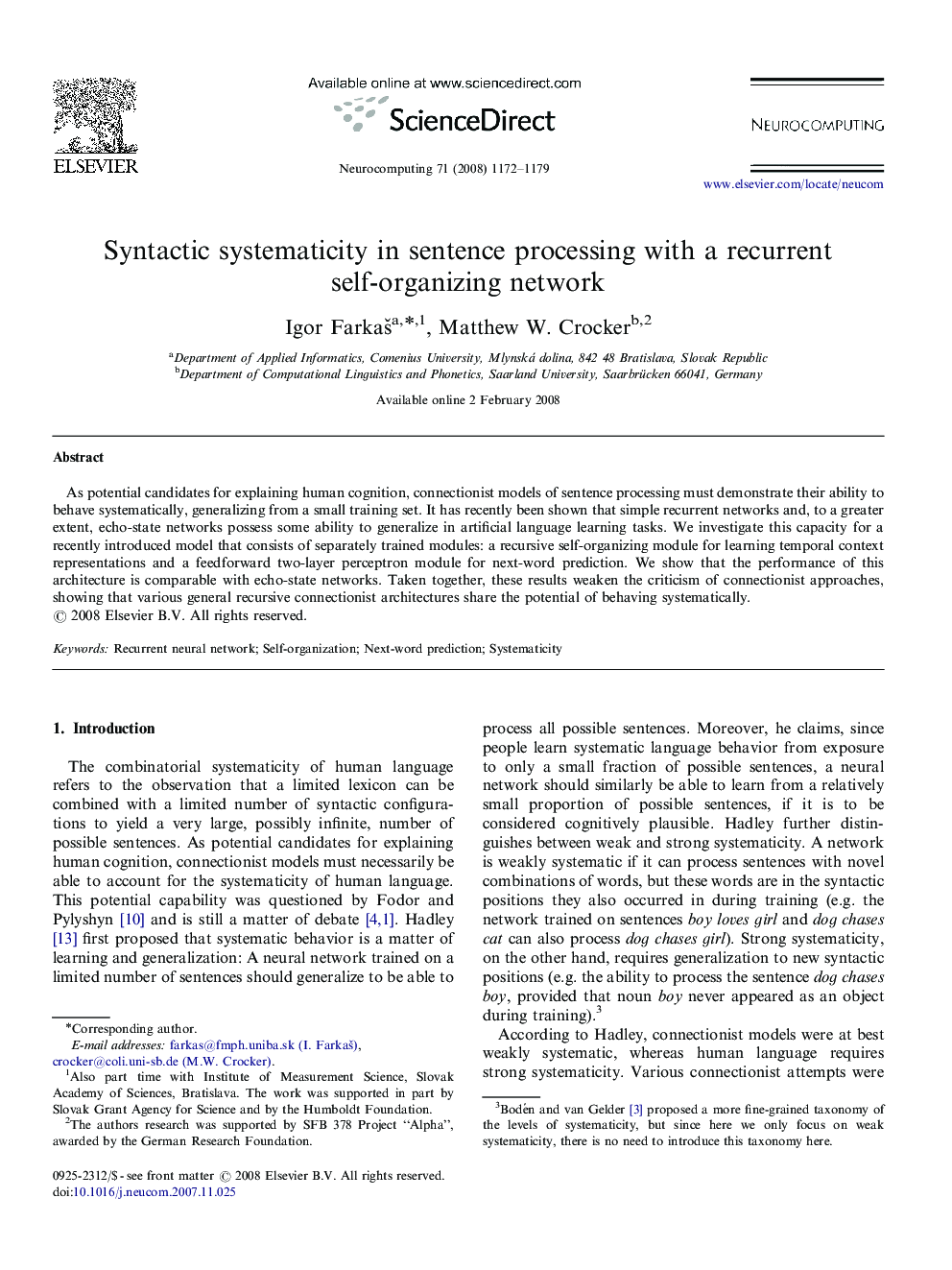| Article ID | Journal | Published Year | Pages | File Type |
|---|---|---|---|---|
| 409125 | Neurocomputing | 2008 | 8 Pages |
As potential candidates for explaining human cognition, connectionist models of sentence processing must demonstrate their ability to behave systematically, generalizing from a small training set. It has recently been shown that simple recurrent networks and, to a greater extent, echo-state networks possess some ability to generalize in artificial language learning tasks. We investigate this capacity for a recently introduced model that consists of separately trained modules: a recursive self-organizing module for learning temporal context representations and a feedforward two-layer perceptron module for next-word prediction. We show that the performance of this architecture is comparable with echo-state networks. Taken together, these results weaken the criticism of connectionist approaches, showing that various general recursive connectionist architectures share the potential of behaving systematically.
